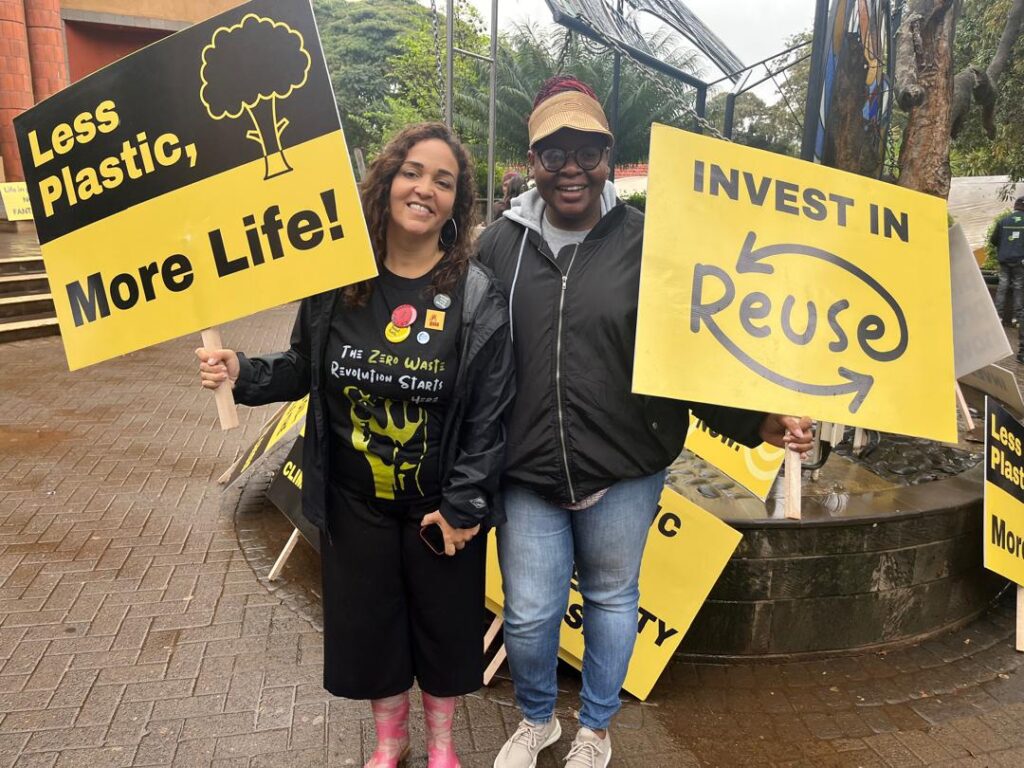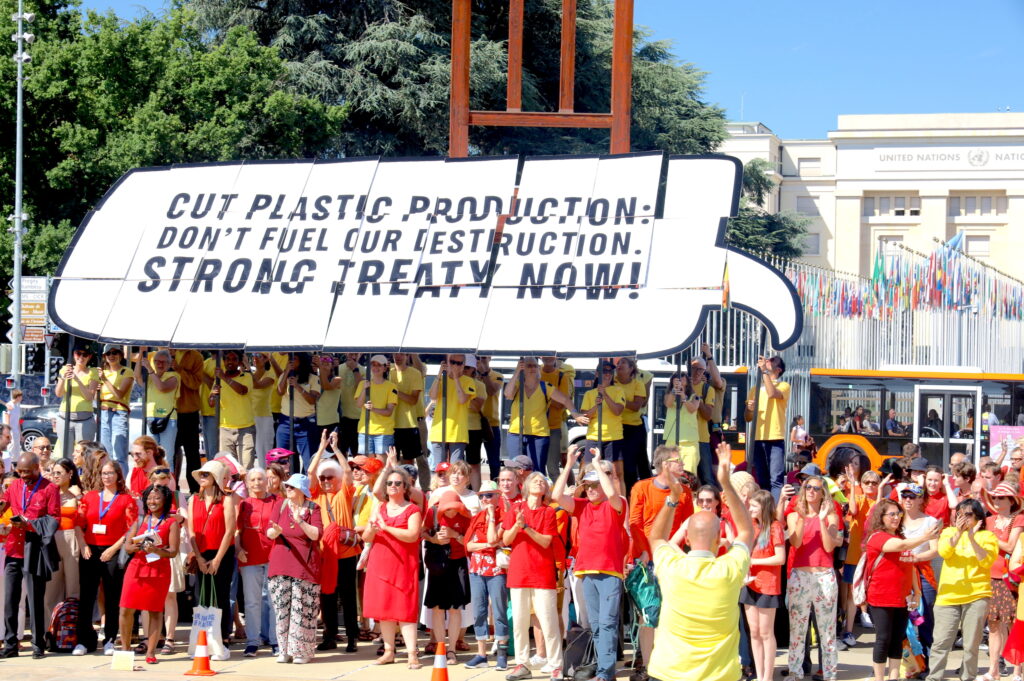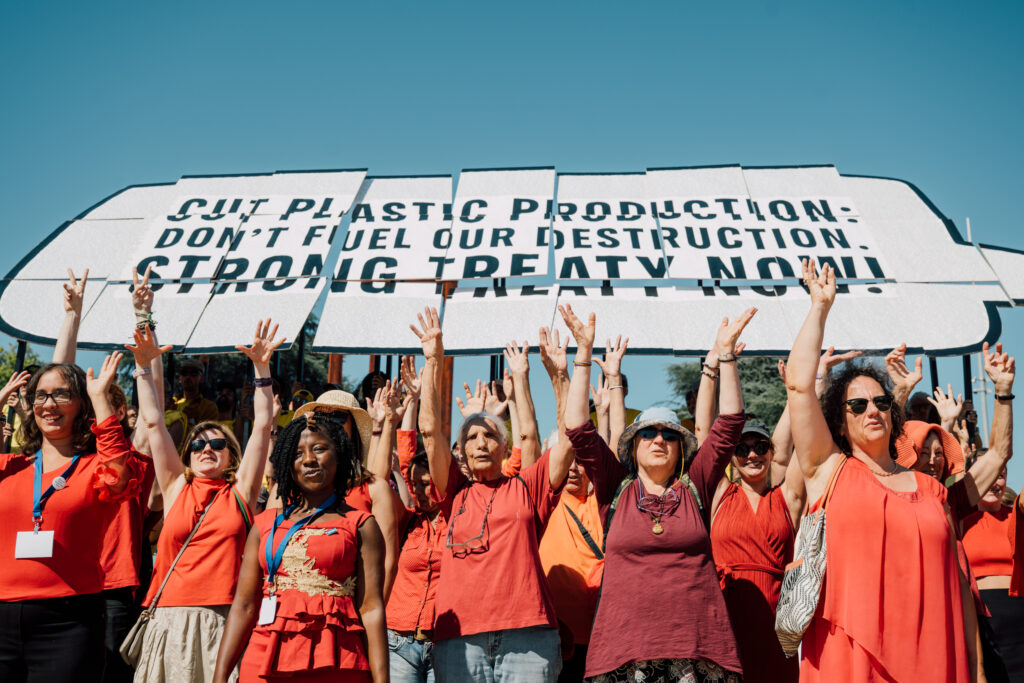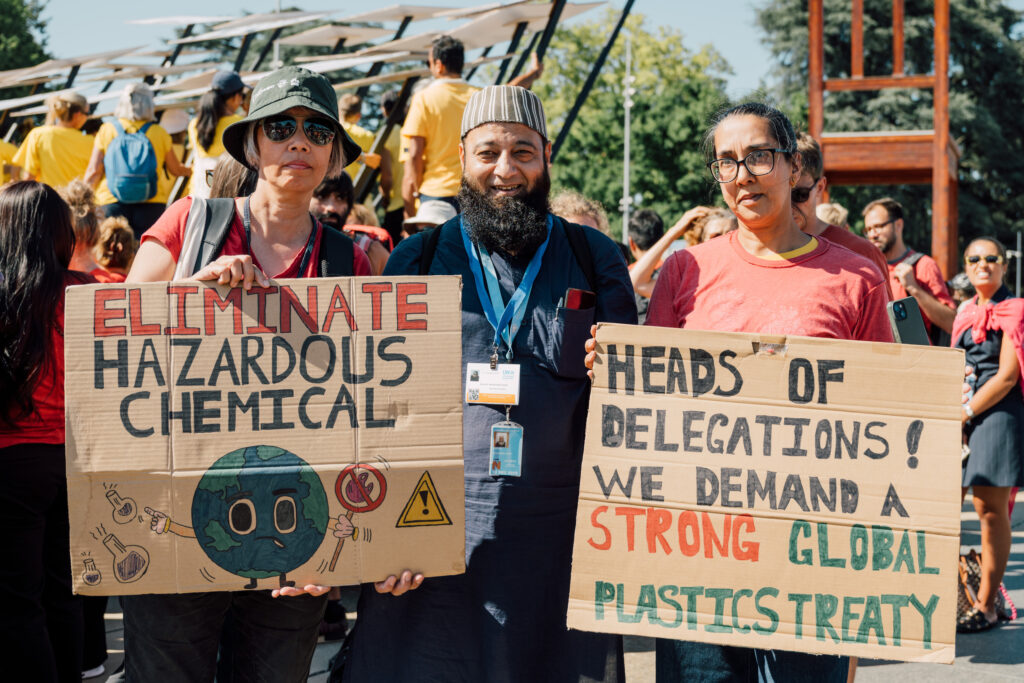Geneva, Switzerland. As the final round of negotiations for a Global Plastics Treaty begins, hundreds of citizens and civil society organizations gathered at Place des Nations in Geneva to demand a bold and legally binding agreement that prioritizes people and the planet over polluters.
The demonstration—organized by Greenpeace Switzerland, the Break Free from Plastic movement, the Gallifrey Foundation, and a growing coalition of environmental and social justice groups—marks the opening of the last phase of the UN treaty negotiations, scheduled from August 5 to 14 at the Palais des Nations.
Protesters dressed in yellow, red, and orange to highlight the urgency of the plastic crisis and the grave risks posed by unregulated plastic production, which is largely fossil fuel-based.

“As the host country for these negotiations, we expect Switzerland to uphold strong ambitions for the treaty. With plastic production projected to triple by 2050, any agreement without a global target to reduce production will be doomed to fail,” said Joëlle Hérin, an expert in consumption and circular economy at Greenpeace Switzerland.
She adds, “Ending the age of plastic is crucial to protecting our health, communities, and the planet,”
For African countries, the treaty represents a pivotal chance to address the continent’s unequal burden of plastic pollution.
Despite having among the lowest per capita plastic waste generation, African communities are disproportionately affected by environmental and health consequences, worsened by waste imports from wealthier nations.
“Our communities are drowning in plastic waste while contributing just a fraction to global production,” said Hellen Dena, Greenpeace Africa’s Pan-Africa Plastics Project Lead.

“We need a treaty that tackles plastic pollution at the source by cutting production not one that shifts the burden onto those least responsible. Governments must stand up to petrochemical interests during these negotiations. We cannot allow oil-producing countries, influenced by big oil and petrochemical corporations, to dominate the process and weaken the treaty’s ambition.”
With no global action, plastic production could triple by 2050. Since China banned plastic waste imports in 2018, Africa has increasingly become a dumping ground, creating toxic sites that pollute soil, water, and air.
The United Nations Environment Programme (UNEP) reports that plastics contain over 16,000 chemicals—at least 4,200 of them hazardous to human and environmental health. The long-term health effects are still being uncovered.
Dena added, “An effective treaty must include a just transition for waste pickers, who number around 20 million globally, many of whom are in Africa. Across the continent, community-led initiatives are already developing plastic-free alternatives, reuse systems, and sustainable waste management models that the world can learn from.”

African nations have shown strong leadership in earlier negotiation rounds. Countries like Rwanda and Ghana have advocated for caps on plastic production and the elimination of harmful plastics.
Greenpeace Africa urges all member states to push for ambitious production cuts—across the entire plastic lifecycle from manufacturing to disposal—and to align the treaty with the Basel and Bamako conventions, which are key to stopping illegal waste dumping in Africa.


